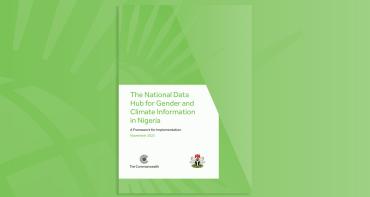Visionary women leaders in government, business and civil society from across the Commonwealth came together in London today to identify practical steps to achieve gender equality and the protection and empowerment of women and girls.

Visionary women leaders in government, business and civil society from across the Commonwealth came together in London today to identify practical steps to achieve gender equality and the protection and empowerment of women and girls.
They explored solutions ranging from improved education, to making better use of new technologies, to targets and quotas to boost women’s leadership.
Opening the Women Leaders’ Summit this morning, Commonwealth Secretary-General Patricia Scotland vowed to be a champion for women and girls. She made it clear that action on gender equality and women’s empowerment is “core to the success of the Commonwealth”.
“As we move from aspirations to entitlements and from plans and intentions to actions, I thought it was necessary to convene this Women Leaders’ Summit,” she said. “It comes at an opportune time, a time that recognises women’s capacity and capability to take control of their lives and reshape the world they live in.”
The Secretary-General also praised phenomenal women leaders around the world, including the UK’s new Prime Minister Theresa May. But she also highlighted the lack of recognition for great women and the challenges women still face in rising to leadership.
The keynote speaker was the Lieutenant Governor of Puducherry in India, Kiran Bedi. She shared her six-point plan for sustainable crime prevention, which involves collaboration with the media, the police, the courts and other agencies.
Ms Bedi was voted the most admired and trusted woman in India by Reader’s Digest. She stressed the importance of collaboration, care and conscientiousness in effective leadership.
She said: “It’s all about sharing – the more you share, the more you give others a voice. You are translating leadership to the grassroots level, and as you turn back and go home you’ve left leaders behind, who will continue to transform because they were inspired. You became a mentor and a role model and that was your duty to do, you’ve not done anyone a favour.”
Working in groups, the participants examined three specific areas: violence against women, women in leadership and women’s economic empowerment. They discussed disturbing statistics which laid bare the plight of the millions of girls who are forced into marriage at a young age, who live with female genital mutilation, and who experience school gender-based violence.
They discussed specific measures such as compulsory sexual and relationship education in schools and domestic violence perpetrator programmes. They called on the Commonwealth to lead with initiatives such as model laws to strengthen legislation, creating tool kits, co-ordinating collaborations, sharing best practice, awarding companies with diverse boards, and stepping up its advocacy efforts on behalf of women and girls.
“Can you imagine a bunch of women leaders coming together and agreeing action points? It was quite a passionate session. With the sheer power in this room you know we will be able to affect change through collaboration,” said Melanie Eusebi, founder of the Black British Business Awards.
Minister Counsel at the St Vincent and The Grenadines High Commission, Doris Charles, said she was encouraged that the Commonwealth is “moving towards a roadmap with a clear vision and a bottom up approach to planning and the implementation of these plans.”
After lunch HRH The Duchess of Cornwall paid a surprise visit to the Summit. Today she had her own meeting on domestic violence, but she wanted to show her solidarity with women at the Commonwealth meeting.
Secretary-General Scotland, who is nearing the end of her first 100 days in office at the Commonwealth Secretariat, thanked The Duchess of Cornwall for her support. In her closing speech she highlighted the importance of collaboration and thanked the women for taking up her challenge to commit to at least one thing to improve the lives and prospects of women and girls.
She urged the women in the room to visualise the people, the children, to think about the elderly, the youth and those struggling to make ends meet. She said “What we are doing really matters. It is not esoteric. We have a choice to really change lives. I thank you from the bottom of my heart from all those people who need your passion, your contributions, and as a result of today are going to get it.”



